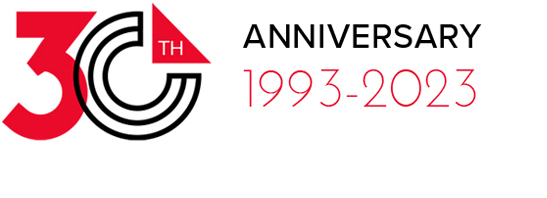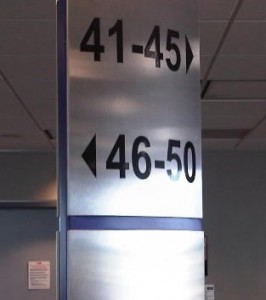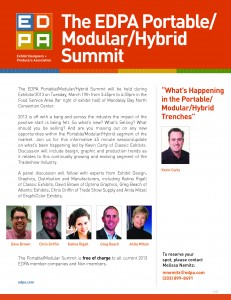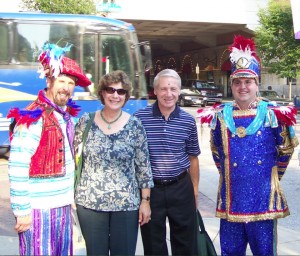
Word on the Street by Kevin Carty
Yes Yes Yes, I am on another Seth Godin rant. Like the others, this one is too good not to share, especially in light of what we are seeing in our own businesses and industry
“The Industrial Age” is dying, and we’re experiencing a new economy, one based on connection, knowledge, and most importantly, choice.
And what comes with choice? A need to BE DIFFERENT. We see this everyday. So many of us find ourselves bidding on the same projects: projects that have a budget, a predefined space, and a list of prerequisite client-based needs. So, to win that business, we have to be different in the intangibles! Most potential clients see us as the same widget, in the same price range, meeting the same needs. Yet someone wins the business. And how do they do that? Seth provides some answers.
The following are excerpts from his newest book, The Icarus Deception: How High will You Fly?
The Connection Economy
Successful organizations have realized that they are no longer in the business of coining slogans, running catchy ads, and optimizing their supply chains to cut costs.
And freelancers and soloists have discovered that doing a good job for a fair price is no longer sufficient to guarantee success. Good work is easier to find than ever before.
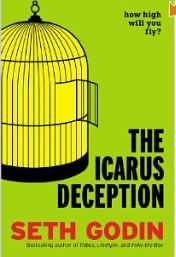 What Matters Now:
What Matters Now:
- Trust
- Permission
- Remarkability
- Leadership
- Stories that spread
- Humanity: connection, compassion, and humility
All six of these are the result of successful work by humans who refuse to follow industrial-age rules. These assets aren’t generated by external strategies and MBA’s and positioning memos. These are the results of internal struggle, of brave decisions without a map, and the willingness to allow others to live with dignity.
They are about standing out, not fitting in, about inventing, not duplicating.
TRUST AND PERMISSION: In a marketplace that’s open to just about anyone, the only people we hear are the people we choose to hear. Media is cheap, sure, but attention is filtered, and it’s virtually impossible to be heard unless the consumer gives us the ability to be heard. The more valuable someone’s attention is, the harder it is to earn.
And who gets heard?
Why would someone listen to the prankster or the shyster or the huckster? No, we choose to listen to those we trust. We do business with and donate to those who have earned our attention. We seek out people who tell us stories that resonate, we listen to those stories, and we engage with those people or businesses that delight or reassure or surprise in a positive way.
And all of those behaviors are the acts of people, not machines. We embrace the humanity in those around us, particularly as the rest of the world appears to become less human and more cold. Who will you miss? That is who you are listening to?
REMARKABILITY: The same bias toward humanity and connection exists in the way we choose which ideas we’ll share with our friends and colleagues. No one talks about the boring, the predictable, or the safe. We don’t risk interactions in order to spread the word about something obvious or trite.
The remarkable is almost always new and untested, fresh and risky.
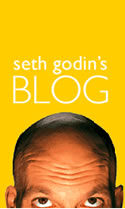 LEADERSHIP: Management is almost diametrically opposed to leadership. Management is about generating yesterday’s results, but a little faster or a little more cheaply. We know how to manage the world—we relentlessly seek to cut costs and to limit variation, while we exalt obedience.
LEADERSHIP: Management is almost diametrically opposed to leadership. Management is about generating yesterday’s results, but a little faster or a little more cheaply. We know how to manage the world—we relentlessly seek to cut costs and to limit variation, while we exalt obedience.
Leadership, though, is a whole other game. Leadership puts the leader on the line. No manual, no rule book, no überleader to point the finger at when things go wrong. If you ask someone for the rule book on how to lead, you’re secretly wishing to be a manager.
Leaders are vulnerable, not controlling, and they are racing to the top, taking us to a new place, not to the place of cheap, fast, compliant safety.
STORIES THAT SPREAD: The next asset that makes the new economy work is the story that spreads. Before the revolution, in a world of limited choice, shelf space mattered a great deal. You could buy your way onto the store shelf, or you could be the only one on the ballot, or you could use a connection to get your resume in front of the hiring guy. In a world of abundant choice, though, none of these tactics is effective. The chooser has too many alternatives, there’s too much clutter, and the scarce resources are attention and trust, not shelf space. This situation is tough for many, because attention and trust must be earned, not acquired.
More difficult still is the magic of the story that resonates. After trust is earned and your work is seen, only a fraction of it is magical enough to be worth spreading. Again, this magic is the work of the human artist, not the corporate machine. We’re no longer interested in average stuff for average people.
HUMANITY: We don’t worship industrial the way we used to. We seek out human originality and caring instead. When price and availability are no longer sufficient advantages (because everything is available and the price is no longer news), then what we are drawn to is the vulnerability and transparency that bring us together, that turn the “other” into one of us.
For a long time to come, the masses will still clamor for cheap and obvious and reliable. But the people you seek to lead, the people who are helping to define the next thing and the interesting frontier, these people want your humanity, not your discounts.
All of these assets, rolled into one, provide the foundation for the change maker of the future. And that individual (or the team that person leads) has no choice but to build these assets with novelty, with a fresh approach to an old problem, with a human touch that is worth talking about.
For Classic Exhibits, connection/relationships are a huge part of our success and growth. Many of you have introduced us to new customers, markets, and projects. I have often said that we have grown by securing a larger piece of the pie. And much of that is based on your work and your references.
Thanks for letting me share a little Seth with you again. Hope you had a great weekend.
Kevin Carty
http://twitter.com/kevin_carty
http://www.linkedin.com/pub/kevin-carty/3/800/32a


